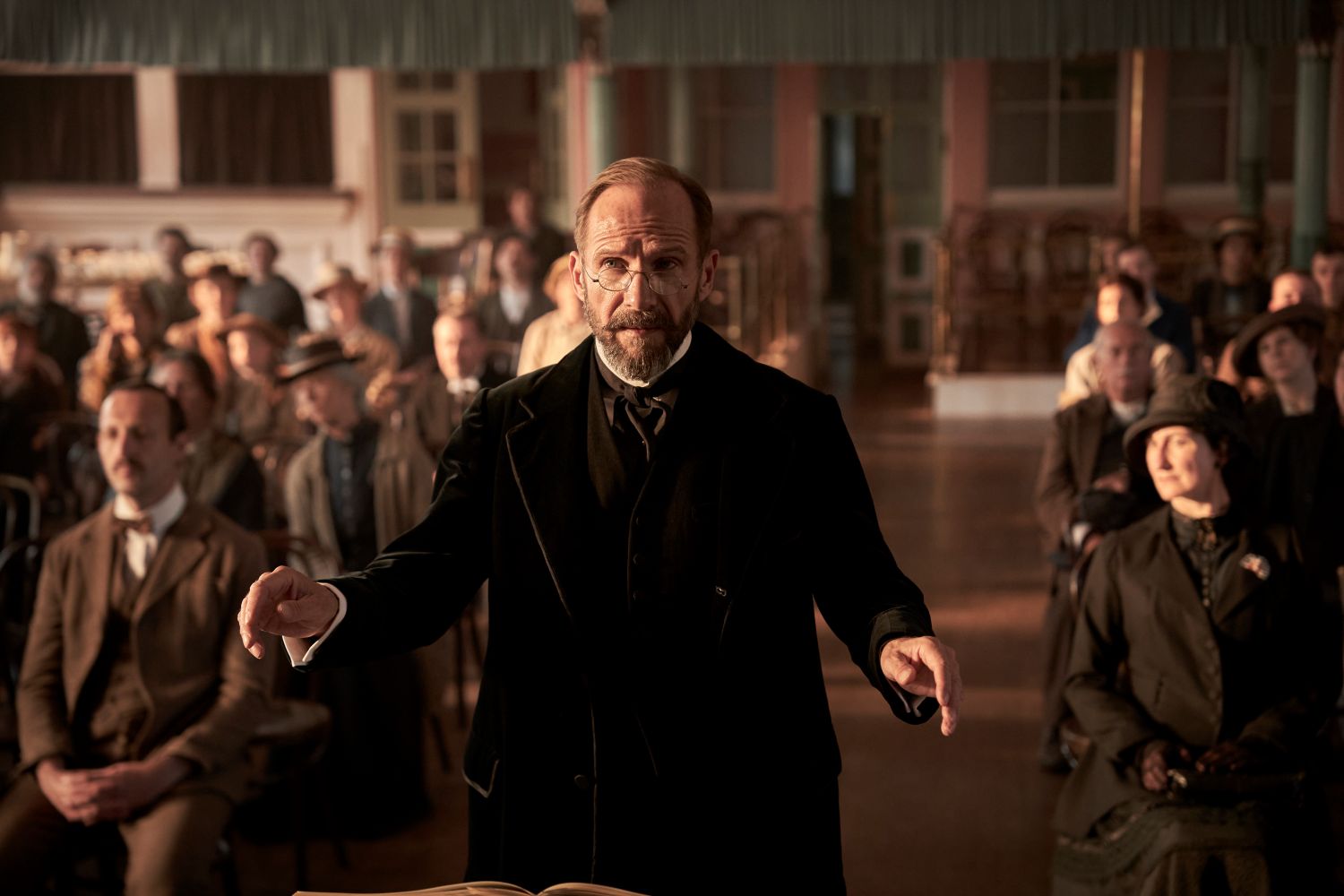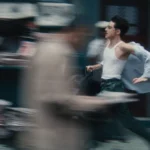Ralph Fiennes leads a fine ensemble in Nicholas Hytner and Alan Bennett’s collaboration The Choral, an aptly named historical comedy drama about a local choral society set during World War I. It’s a delightful tale, expertly written, beautifully acted, weaving in the traumas of the war as those men who sing must grapple with their impending recruitment – and while it remains very much anchored in that stereotypical British cocoon of countryside escapades, young unshaven boys with sly smiles, and town hall tea, it is nonetheless a true testament to the power of community through song.
Committee head Bernard Duxbury (Roger Allam) and his fellow board are left dumbstruck when their choirmaster enlists voluntarily at the end of a rehearsal and departs imminently. After much deliberation, the name floated about as his replacement is that of Dr. Guthrie (Fiennes), a rather divisive choice considering his extensive travels and work in Germany. The man himself is even more controversial – he appears scandalously un-patriotic, and has no qualms dropping a line or two of German in quaint philosophical asides. This choral, particularly the two resident senior dames, is shook to its core – but, despite their hesitations, there is no doubt that Guthrie is an excellent maestro who will lead them to glory. The glory in question is Edward Elgar’s The Dream of Gerontius, a text new to the choral and full of meaning for the historical context, a tale of pious man’s journey from his deathbed to heaven, with the purgatory that awaits him in between.
One of many collaborations between Hytner and Bennett, The Choral marks their first original screenplay together. It is clear however that Bennett is used to writing for the stage – at all times, the plot keeps a rather dramatic edge, so much so you can almost see the wings as the characters disappear offscreen. As a result, there are quite a few sequences that feel performative to the point of discomfort – characters argue grotesquely, pompously, while another, knelt down in pain, recounts to the choral what real purgatory is – no man’s land. It’s hard to imagine how these scenes could have worked onscreen, since the ones that try and strike feel so inconsequential. It is the choral’s performances that are also quite lacklustre altogether – the final performance particularly feels anticlimactic, and though the sentiment is there, it feels as though Hytner and Bennett were not entirely sure where to take. It is perhaps in the end a shame that one of the only stories Bennett has written in which characters take to the stage was not meant for it.
This is not to say that there is no feeling to The Choral – on the contrary, there is buckets of it, no doubt thanks to its ragtag ensemble, from Allam’s mill-owner with a passion for singing but no real talent through to Jacob Dudman’s Clyde, a recently returned soldier who comes home to find his girlfriend (Emily Fairn) with another chorist (gasp!). Though the pain is evident on Clyde’s face, and in his singing (he proves to be the most talented of the lot, much to Guthrie’s ecstasy), The Choral is not a film that dwells on sadness despite its topic. And yet, this is where it has the most weight – be it Clyde and his request to his former bride to be, Guthrie’s past which is only hinted at, or the three leading young boys who know what is coming for them, these are the moments in which The Choral, almost without realising, packs a punch and finally takes flight.
The Choral screened at the London Film Festival.





